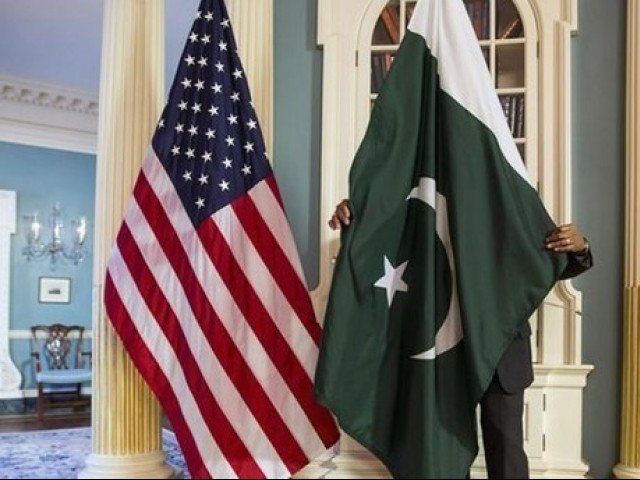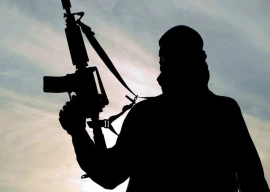
The United States must move on from the "trauma" of two decades of war and step up counterterrorism efforts to face growing threats from Afghanistan and Pakistan, a study said on Tuesday.
The study group, led by former senior US policymakers, made clear it was not advocating a return to America's longest war which ended when President Joe Biden pulled troops from Afghanistan in 2021 and the Taliban regained control.
But it said that, after the overwhelming focus on counterterrorism following the September 11, 2001 attacks, the pendulum "appears to have swung in the opposite direction" as the United States focuses on competition with China, Russia's invasion of Ukraine and the Israel/Hamas war.
"Both decision-makers and many who have laboured within the national security agencies show signs of something like collective trauma resulting from a 20-year-long counterterrorism effort," said the study group, convened in 2022 under the US Institute of Peace.
Read more: Pakistan prioritises US ties for peace, prosperity
"The tragic end of US involvement in Afghanistan has also made it a toxic issue, reinforcing inclinations to keep the region off the policy agenda and the public's radar," it said.
But it said that extremist movements are "gaining strength in ways that threaten US and allied interests" and have found a "range of new opportunities for regrouping, plotting and collaborating" in Afghanistan.
It pointed to the ISIS-Khorasan, Taliban rivals who have nonetheless found a haven in Afghanistan and were implicated in a major attack in March in Moscow, and the Tehreek-e-Taliban Pakistan (TTP), which has been waging an armed campaign against Islamabad.
The report called on the United States to be "less restrictive" on the use of force against threats in Afghanistan -- not a return to conventional war but pursuing military action against direct threats identified to the United States.
Also read: Pakistan to seek US waiver for Iran gas pipeline project
It also called for the United States to consider "shows of force" such as flying drones to pressure Taliban leaders to sever persistent ties with Al-Qaeda.
Noting a drop in US intelligence and capabilities since the withdrawal, the study called for the United States again to work with Pakistan, including on fighting militants and securing long-term US access to Pakistani airspace.
Pakistan became a top US aid recipient during the Afghanistan war but US officials long believed that Islamabad was playing a "double-game" and keeping the Taliban alive.
The Biden administration has shown little interest in engaging Pakistan, an inclination not helped by the tumultuous politics inside the world's fifth most populous country.
"You've got a lot of people currently serving at the highest levels of the US government who have a strong distaste for Pakistan based on experience during the 20 years in Afghanistan," said Laurel Miller, co-chair of the study group, who served as the US special representative for Afghanistan and Pakistan and now heads The Asia Foundation.
"There's a strong feeling of Pakistan having been disingenuous, to say the least, with the United States," she told AFP.
"But there are certain immutable realities, which include that Pakistan is next door to Afghanistan, which currently is a sanctuary for terrorist groups," she said.
"So I think there's just no choice other than to have a kind of relationship with Pakistan that enables the US to protect its own interests in the region."
She said that US policy on Pakistan was also affected by the "zero-sum view" of India, a growing partner of Washington which has long criticised US ties with its neighbour and historic adversary.
The study called for the United States to make clear to Pakistan "serious negative repercussions" if militants based in the country again attack India.
The report's other co-chair was Michael Nagata, a retired army lieutenant general with experience in counterterrorism.
Other members of the group included Anne Patterson and Michael McKinley, former US ambassadors to Pakistan and Afghanistan respectively, and prominent scholars.

1732274008-0/Ariana-Grande-and-Kristin-Chenoweth-(1)1732274008-0-165x106.webp)



1732270499-0/Express-Tribune-(7)1732270499-0-270x192.webp)
1732267715-0/BeFunk_§_]__-(32)1732267715-0.jpg)

1732263788-0/BeFunk_§_]__-(30)1732263788-0.jpg)
1732268955-0/BeFunk_§_]__-(33)1732268955-0.jpg)










COMMENTS
Comments are moderated and generally will be posted if they are on-topic and not abusive.
For more information, please see our Comments FAQ